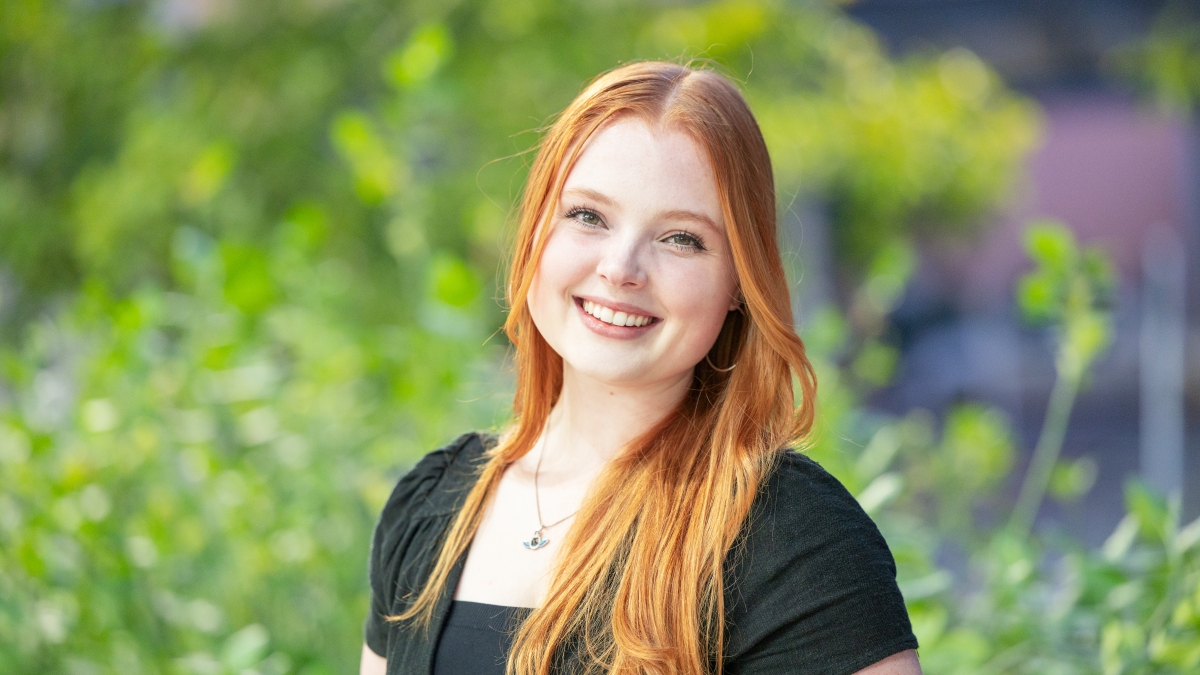There are many ways to reinvent a library. This academic year, the Arizona State University Library will introduce you to a few of them.
Just in time for the start of the fall semester, and amidst a major renovation, Hayden Library has opened the Concourse level, the first newly designed space of the Hayden2020 reinvention project.
The Concourse connects the lower levels of ASU’s largest library to its four-story, above-ground tower, set to open its doors this January.
“The ASU community will be glad to know that the Hayden Library has grown bigger this semester, not smaller,” said Tomalee Doan, associate university librarian for Engagement and Learning Services. “With the opening of the Concourse level, and as we get closer to 2020, students can expect to see greater options for studying, learning and research support.”
Eight new classrooms have been added to Hayden Library's Concourse, along with a new library entrance on the north side of the library near the School of Life Sciences.
In addition to the new classrooms, Hayden Library now features more meeting and study space with enhanced casual seating options to make students feel more comfortable and supported during their study sessions and group work.
Students looking to take a break and relax now have the option to browse a variety of themed book collections scattered throughout the new space or get a bite to eat at the P.O.D market.
The Hayden Library Concourse also houses an interfaith reflection room, for prayer and meditation, a wellness room and gender-inclusive restrooms.
“We are nearing the finish line of the transformation of Hayden Library, and the new spaces that have opened this semester are a reflection of that,” Doan said. “It’s just the beginning of what’s to come.”
No more paywall
If you are a current student, faculty or staff member enjoying your free digital access to the New York Times, then you will be happy to know that you also have free digital access to the Wall Street Journal (WSJ).
All you need to do is activate the account.
The WSJ service can be accessed via tablet, smartphone app or the web, and the service includes resources for faculty to seamlessly integrate content into course pages in facilitating classroom discussion of relevant and timely news stories.
Student accounts will stay active until their graduation date, while faculty and staff will need to validate their memberships once a year.
For ASU students, faculty and staff seeking thoughtful entertainment — everything from Chaplin to foreign and independent films — high quality video content is available to stream free of charge via the Kanopy platform.
An on-demand streaming service for public libraries and universities, Kanopy features a large, curated collection of diverse, unique and award-winning films and documentaries.
To start streaming, all you need to do is sign up.
Boost your research
Several new support offerings for researchers are available through the ASU Library this semester.
Among them is Researcher Support, offering ASU researchers guidance across the research lifecycle, from planning to data storage, in an effort to maximize the quality, productivity and accessibility of ASU research.
For ASU students looking to gain the research skills that will help them succeed in graduate school, the Graduate Scholars Toolkit is a series of one-hour workshops offered at various times throughout the semester on a variety of topics, including copyright, citation management, collaboration and data sharing tools, data visualization and text analysis.
The workshops are offered on all campuses with more online offerings to come.
For students, faculty and staff looking for research opportunities in data science, the Unit for Data Science and Analytics is launching its Open Lab for the 2019–20 academic year.
A weekly event in Hayden Library, the Open Lab brings together researchers interested in collaborating and learning new skills with ongoing and available projects that engage machine learning, data visualization, text and data mining, network analysis and more.
In addition to Open Lab, the Unit for Data Science and Analytics is also open for collaborations with faculty and staff.
“Our model is to do great work in interdisciplinary data science, and we want to make sure we include as many people as possible, whether faculty, student or staff,” said Michael Simeone, director of data science for the ASU Library.
The lab also directly mentors students and teams, meeting by appointment for developing their experiments and studies. All skill levels are welcome.
Interested in data science and/or Open Lab? Reach out to the team for more information.
Get your books delivered
Need to pick up some books but can’t make it to the library?
Get them delivered!
Secure, self-service book delivery lockers are now available in Armstrong Hall on the Tempe campus to allow for the quick and convenient picking up and returning of library materials.
All you need is your Sun Card.
Top photo: Student worker Max Stokes, a junior in global studies, shelves book collections related to the content to be taught in nearby classrooms. Photo by Charlie Leight/ASU Now
More Sun Devil community

Finishing what she started: ASU grads’ lifelong pursuit of education becomes a reality
Makita Hogans has tried her hand in higher education for years, but her commitment to her newly born son put her vision for a degree on the back burner.“I made the choice to raise my son. His future…

NASA Brooke Owens Fellow, Space Grant alum awarded Dean’s Medal for approach to science education
Lindsey Tober was looking for a way to combine her creative side with her passion for science when she found the technological leadership degree at Arizona State University and ultimately used it to…

From MCAT to data crunch: How one ASU grad pivoted like a pro
From taking the MCAT for fun — her bachelor's degree is in pre-med — to earning her master's degree in business analytics from the W. P. Carey School of Business this fall, Arizona State University…







